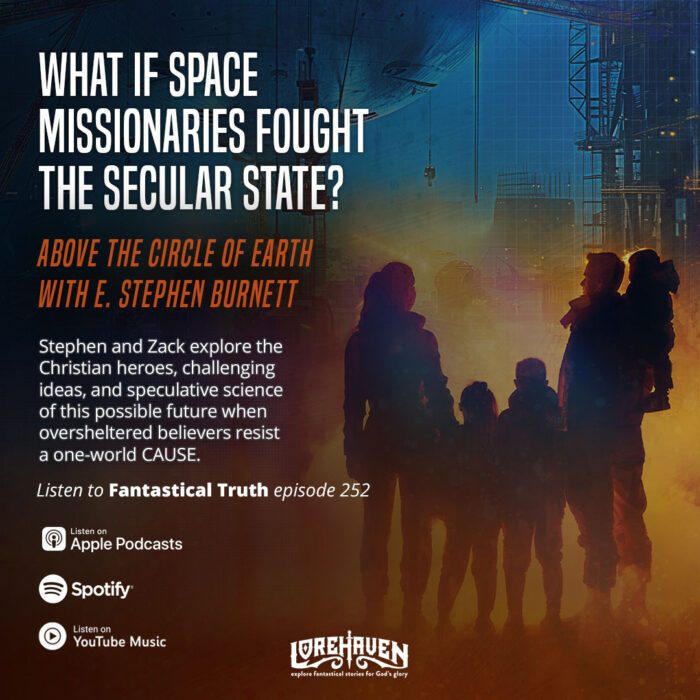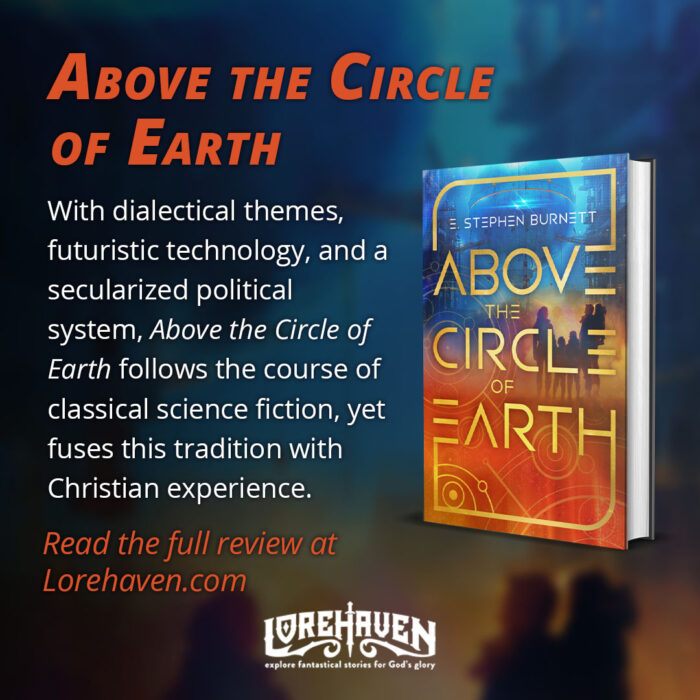Would God Come Along Too?
I recently finished season one of National Geographic’s scifi drama Mars, now streaming on Netflix. Part modern-day Elon Musk documentary, part near-future hopefulness, 100% marketing, Mars is about as realistic as a scifi show can get, to its credit and its detriment. Comparisons to the blockbuster movie The Martian are inevitable, but unlike Matt Damon’s gee-shucks-I’m-going-to-science-the-s***-out-of-this American hero character, the cast of Mars play everything totally straight-faced, and the emotional and psychological toll of extra-planetary travel results in unforeseen and sometimes tragic consequences.

Image copyright National Geographic
If you’ve read my articles before, you probably know that I’m quite cynical about space travel as a whole. I don’t believe humankind will ever leave Earth and establish a colony on another world. I don’t believe we will ever journey to the stars. The Earth is our home and always will be, even after Christ’s return. Part of my cynicism is rooted in the Bible, which places such keen emphasis on Earth as humanity’s first and final destination, but I also find the desperation to leave Earth and make a new home for ourselves to be fatally humanistic, like we’re just not just leaving pollution and poverty and disease behind, but we’re also running away from God and religion and seeking to make a New World for ourselves, all to ourselves. I gladly applaud the demise of any such endeavors.
But what if we were to make a break for it and leave this rock for another? Would God be invited along for the ride?
The scientific community is largely atheistic, and it stands to reason that the people who would make such an adventure possible would have little room for God in their lives. But there would also likely be many who would be religious. After all, most of humanity believes in some form of deity. It would be callous for those seeking to make a new start for humanity to insist that one of the core elements of human existence be left behind.
So what place would religion have on a new world? Ships, jails, universities, hospitals, virtually every institution aside from banks and businesses have traditionally had priests, chaplains, monks, etc. I would bet that any space-faring project would be forced to bring along religious leaders of some sort. The scientists would probably grumble and complain but the governments sponsoring such a project would need to appease its taxpaying citizenry, who would probably not be thrilled to send a godless exploration party into the heavens. There would certainly be tension between those who would seek to minimize the presence of religion on the voyage, such as selecting atheistic or agnostic crew members, and those who would insist that God be brought along, in some form or fashion, since He/She/It/They are responsible for bringing humanity this far. Plus, think of the PR opportunity: a Muslim imam, a Jewish rabbi, a Buddhist monk, a Hindu guru, a Baptist preacher, and a Catholic priest lifting off together to bring God to the stars.

Could the world’s religions coexist in the stars?
But what use would God be on a cold and hostile world? Would people really take time to pray and read their Bibles while they’re trying to stay alive on a barren and hostile world? Or would those ancient notions of a higher power finally be put to rest when people realize that they don’t need God to achieve their dreams for humanity? After all, God didn’t build the rockets that brought them to this new world. God didn’t calculate fuel ranges and radiation spikes and atmospheric entry velocities. These intrepid explorers got to this new world and built this new home through grit and sweat and sacrifice and intelligence. Why would they need God anymore?
Only a fool would think such thoughts (Psalms 14:1). The One True God rules the heavens and the Earth (Job 38). All things were created for Him, by Him, and rely on Him for continued existence (Col. 1:16-17). God does not dwell on Earth. His power and glory and dominion are just as strong on the farthest moon of the farthest planet orbiting the farthest star in the universe as they are in a church on Sunday morning.
It doesn’t matter if we bring God along with us or not. He’s already there.






































Space is a vacuum. Lonely isolation is one of the worst plagues on human existence. It simply destroys people, every time. In space, we’d need God more than ever.
This made me think of the tower of Babel–human engineering in praise of ourselves and having only room for ourselves.
Whether we’ll have long term, successful space colonies will probably depend on how long the human race lasts. Given enough time, we probably can figure out a way to colonize a few other planets. But, the idea of us being able to hop into a space ship and go between planets in just a few hours probably won’t happen. At least not for much, much longer.
And yeah, God will still be present and at work in the universe regardless of whether we forget about him.
All you have to do is read the accounts about Jamestown vs. Plymouth. At Jamestown, all the settlers were gentlemen who refused to work. All they wound up doing was bullying the Indians, who for some reason treated them kindly and didn’t butcher them, as they deserved. They starved and died of disease and stuff.
Meanwhile, over in Plymouth, the Pilgrims served God and had one miracle after another, from Squanto showing up and teaching them how to survive, to the indians showing up with food when the colony was down to two kernels of corn per person.
On Mars, there won’t be any Indians. Heck, there won’t be any air or water. While I think people could scratch out a colony there, I think without God, they’ll be murdering each other within a few years.
If it should happen that many years or even centuries pass before the Lord returns–which I think is possible–Christianity will remain important. I think it’s an atheistic fantasy that religion is going away.
It’s also true that someone like Mr. Musk would probably deliberately attempt to exclude Christians from any colony he would create. But who’s to say there will not be Christian inventors and innovators who are able to replicate what Musk and other atheists do?
Totally. Musk strikes me as a bit unstable, anyways. Can’t imagine others can’t do what he’s doing.
There may not be Indians, but there will be Tharks (we can begin properly by calling them Native Martians I think)
Thanks for a great thought exercise Mark. It reminded me of reading C.S. Lewis’ Space Trilogy and his speculation on how other worlds work. It was never lost on me that humans brought evil with them, but ultimately God’s provision came through. And some good old Johnny Cash… “You can run on for a long time, sooner or later God’ll cut you down.”